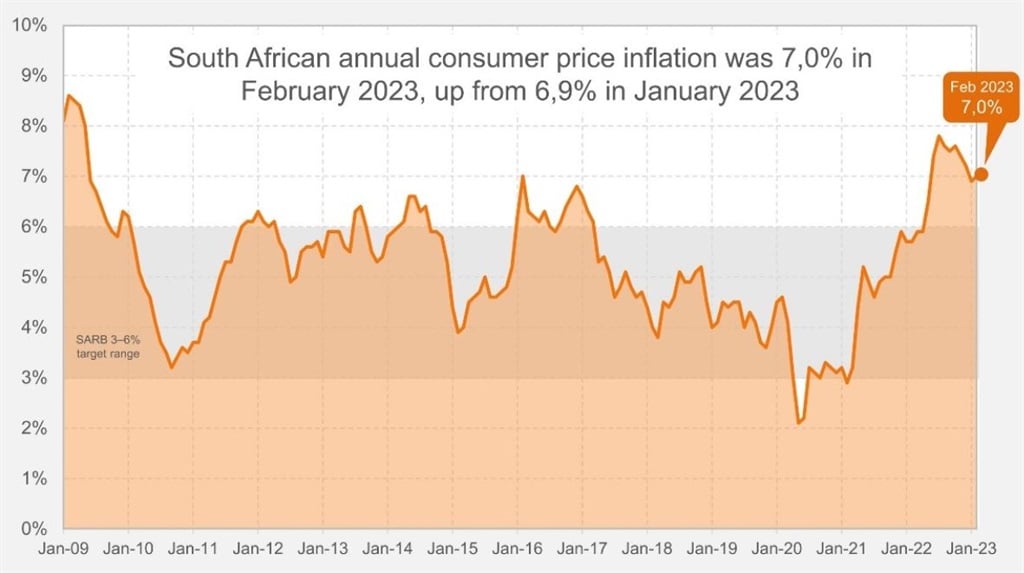

Big hikes in food prices contributed to a 7% increase in annual consumer inflation in February from 6.9% in January – the first increase in four months.
The consumer price index (CPI) rose by 0.7% between January and February, the biggest monthly increase since July 2022, Statistics SA reported on Wednesday.

In February, food and non-alcoholic beverages annual inflation hit 13.6% – the highest level since April 2009.
The price of maize meal increased by almost 35% over the past year, with a sharp rise of 2.2% between January and February alone. Statistics SA reports that rusk prices jumped almost 7% in a single month, while macaroni (+4.4%) and savoury biscuits (+4%) also saw big monthly hikes.
There were large monthly increases in the prices of baby milk formula (+7.2%), baby cereal (+4.6%), fruit juices (+4%) and fizzy drinks in a can (+3.3%).
Meat prices increased to 11.4% in the year to February – the biggest annual hike in five years. However, the monthly increase was only 0.2%, the lowest monthly increase in a year.
Transport (including fuel prices) also contributed to February’s high inflation rate following recent price hikes. But the annual increase in fuel prices slowed to 10.9%, the lowest reading since March 2021.
February’s inflation numbers included annual price hikes for medical services (doctors, dentists and hospital ward fees), Statistics SA reported. Prices increased by 5.3% in February 2023, compared to 5% a year before.
Impact on interest rates
The latest inflation number will be considered when the Reserve Bank’s monetary policy committee decides on interest rate hikes next week.
But just as important is the US central bank’s interest-rate decision later on Wednesday.
The bank was on track for more aggressive rate hikes as US inflation remained stubbornly high – but a banking crisis may convince it to be more cautious with rate hikes. Economists expect that it may hike by a smaller 0.25 percentage point hike – or not increase rates at all. That will give the South African monetary authority significant leeway.
South African inflation reached a 13-year high in July last year, hitting 7.8%. To cool inflation, the Reserve Bank has aggressively hiked interest rates. – news24.com
Sorry. No data so far.

